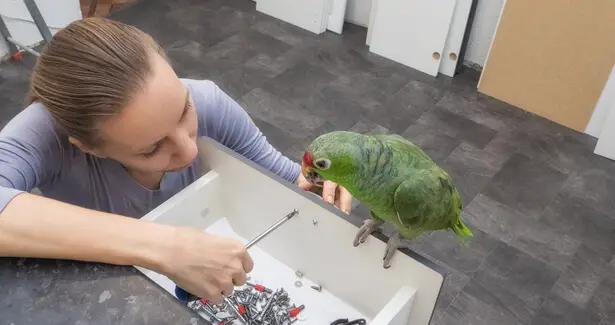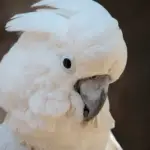
Life with dogs and cats can be fur-iffic, but there’s something downright enchanting about the pitter-patter of bunny feet on your kitchen floor or the tingling sensation of a pet spider as it wanders up your arm. The truth is, if you’re an animal lover, you may be more than just a little eager to open up your home to some less usual pets than are commonly found in households today. Of course, many creatures have specific care needs regarding living space, diet, and routine care. However, when you’re able to meet their needs, you’ll find that many exotic or unusual pets add an excitingly wild dimension to life in your home.
Types of Pets
There are many types of exotic pets you can bring home, but you’ll want to ensure that your pet is legal in the city or state where you live. As incredibly charming as the mongoose is (as evidenced by the animated film Rikki-Tikki-Tavi), you’d be breaking laws by owning one in the U.S. unless you’re a licensed zoo. Here, we’ll outline a few types of uncommon pets that are legal and known to make fun — if not quite usual — household companions.
Reptiles
If you’re a fan of scales, tails, and cold-blooded charisma, you might want to bring reptile pets to your home. If you’re a novice when it comes to reptile care, opt for a relatively easy-to-care-for animal like an Eastern box turtle, corn snake, bearded dragon, or leopard gecko. Other popular reptile pets include:
- Snakes: ball python, boa constrictor, Burmese python, kingsnake, green snakes, tree boas
- Lizards: green iguana, chameleon, green basilisk, skinks, Chinese water dragon, geckos
- Turtles: red-eared slider, Western painted turtle, common musk turtle, spotted turtle
Spiders
If the creepy-crawly arachnid family attracts you with their plethora of eyes and legs, you’ll want to consider a pet such as a tarantula. There are various species of tarantula spiders that make good pets. These include Mexican redknee tarantulas, Chilean rose tarantulas, Brazilian black tarantulas, pink toe tarantulas, and Honduran curly hair tarantulas.
Rabbits
Rabbits can make delightful and surprisingly personable pets, but they may not be ideal for young hands like many exotic pets. Rabbits are delicate and can be shy, at least until they become comfortable in their homes. There are many types of domestic rabbits, but some are known to be friendlier than others. Some rabbit species to consider include the mini lop, dwarf Hotot, Jersey wooly, lionhead, angora, harlequin, and Dutch lop.
Other Uncommon Pets
In addition to reptiles, spiders, and rabbits, you might consider other unique creatures to bring into your home. These pets include ferrets, hedgehogs, frogs, chinchillas, and pigs, all of which have unique traits and care requirements that you’ll want to learn more about with online research or a trip to your local public library.
How to Care for Your Uncommon Pet
Caring for uncommon pets requires a high degree of knowledge, dedication, and — particularly at the outset of pet ownership — some expense. Many of the pets we’ve mentioned require specialized habitats or living quarters for their safety and well-being. Here, we’ve outlined the required tips needed for caring for your exotic or unusual pets. Remember, these tips provide a general overview. You’ll want to devote considerable time to researching the creature you intend to bring home as a pet. You can purchase helpful guides or even watch animal care videos on the Internet for more information.
Reptiles
Reptiles require specialized care and habitats to keep them well. Keep in mind that each type of reptile has its specific care requirements. For instance, iguanas can be maintained on fruits and vegetables, but some lizards require insect meals. You may need to feed your pet snake rodents. Also, reptiles will require a vivarium or a cage designed to accommodate their size and growth expectancy.
Reptiles are cold-blooded, so it’s essential to consider their temperature needs. Many reptiles need sun lamps and strict humidity requirements. Remember that too much humidity can cause problems like fungal infections, so it’s crucial to maintain your pets’ ideal climate. Also, keep in mind that reptiles can become a danger to others as they grow in size. Take care to ensure that your snakes are adequately secured at all times.
When you design and build your terrarium or cage for your reptile, consider the animal’s natural habitat. Some reptiles come from the desert, while others come from humid tropical or subtropical destinations. Your habitat should reflect its place of origin and include materials and a microclimate to enhance its comfort. Ideally, your terrarium or cage should have some open area, shelter, and vertical features if your pet is a climber.
If you are homing a larger reptile, such as an iguana or snake, you can adapt a space like a closet into a cage or purchase a cage that is sized appropriately for your pet. Be sure that your cage is secure at all times for the safety of the creature as well as your household. When creating your cage or terrarium environment, consider adding driftwood, stones, rocks, branches, or sandy substrate. Be sure that items are safely bolted so that they don’t fall onto your reptile and injure them.
Spiders
Like reptiles, tarantulas also require unique habitats. It’s important to house your pet spider in a terrarium that has a secure mesh lid. Naturally, your tarantula needs air, so be sure not to block the cover to ensure the tank has adequate ventilation. On the other hand, many tarantula owners place a sturdy rock on top of the lid to prevent it from being dislodged. If you intend to own more than one pet spider, keep in mind that tarantulas are territorial, so you’ll need to keep your spiders separate.
Your terrarium should include a dark shelter since these creatures are nocturnal and will want to avoid light during the day. You can add some sterilized peat moss for their bedding as well as silk plants for decoration. You’ll also need to attend to your tarantula’s need for warm temperatures and humidity. Be prepared to feed your tarantula pet meals of crickets, locusts, earthworms, and mealworms.
Rabbits
Rabbits make fun of household pets, and many can be trained to use a litter box. However, it’s a good idea to secure your pet rabbit in its pen or large cage when you can’t supervise it. Rabbits are notorious chewers and are known to chew hazardous items like electrical cords. Your pen should include bedding, a water bottle, and chew items such as willow sticks.
To feed your rabbit, provide it with a daily supply of timothy hay, rabbit pellets, and vegetables such as parsley, cilantro, and carrots. You can also give your rabbits some fruit, such as tiny quantities of bananas, which they love. However, rabbits can develop a sweet tooth, so offer sweet fruit treats in small amounts.
Other Pets
If you choose to home a ferret, frog, pig, hedgehog, or chinchilla, you’ll need to acquire specific information to care for these creatures, too, since each will have its own specific care needs. No matter what type of uncommon pet you choose to house, be sure to procure a high-quality guide that will help you provide the care it needs to thrive. These types of unusual pets may need specialized care. Be sure that you research any pet you intend to purchase to understand their requirements from the start. Some pets may not be the best for your particular home environment.
Laws and Regulations for Owning Uncommon and Exotic Pets
Many uncommon pets are legally sold at pet shops or exotic pet stores throughout the U.S. These pets are legal to own in some states, but they’re not all legal in all states. Moreover, many exotic pets are sold at flea markets or on the black market, including animals that are illegal to own. Take care that you purchase your uncommon pet through legal channels.
In addition, some pets may legally be owned in the state under certain conditions, but they may not be owned in the city you live. For instance, you might keep a pet pig or a few chickens if you live in the country, but your city may have ordinances that make ownership of livestock within city limits illegal. The best course of action is to visit your state or city website to read about its regulations and laws regarding exotic pets and wildlife.
You may be required to obtain a license to own individual animals, depending on the state or city you live. Always check because you may be surprised at the regulations concerning your pet of choice. For example, in some states, even pet bunnies are illegal. Colorado has some strict ordinances regarding particular creatures like opossum and skunks — these creatures cannot be owned as pets, whereas other states make no such requirements for them.
Pet ownership is a big step
Pet ownership is a serious commitment because of its perpetual expense and the animals’ care requirements. Many people find themselves attracted to the idea of owning a teacup-sized pig until they realize this creature could wind up weighing more than 150 lbs. Some people like the idea of owning a snake but aren’t keen on feeding it a live meal each week.
Carefully consider your home, its other human and animal inhabitants, and your physical and financial ability to maintain an exotic pet. The right unusual pet can add considerable enjoyment to your life and become a fascinating part of your daily life. Keep these tips in mind so that you choose the right pet for you.
SOURCE:https://porch.com/advice/living-uncommon-indoor-pets




















